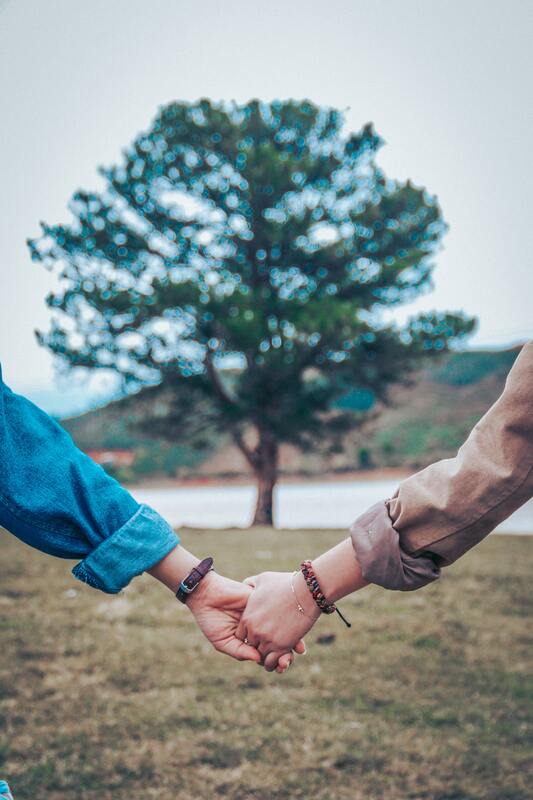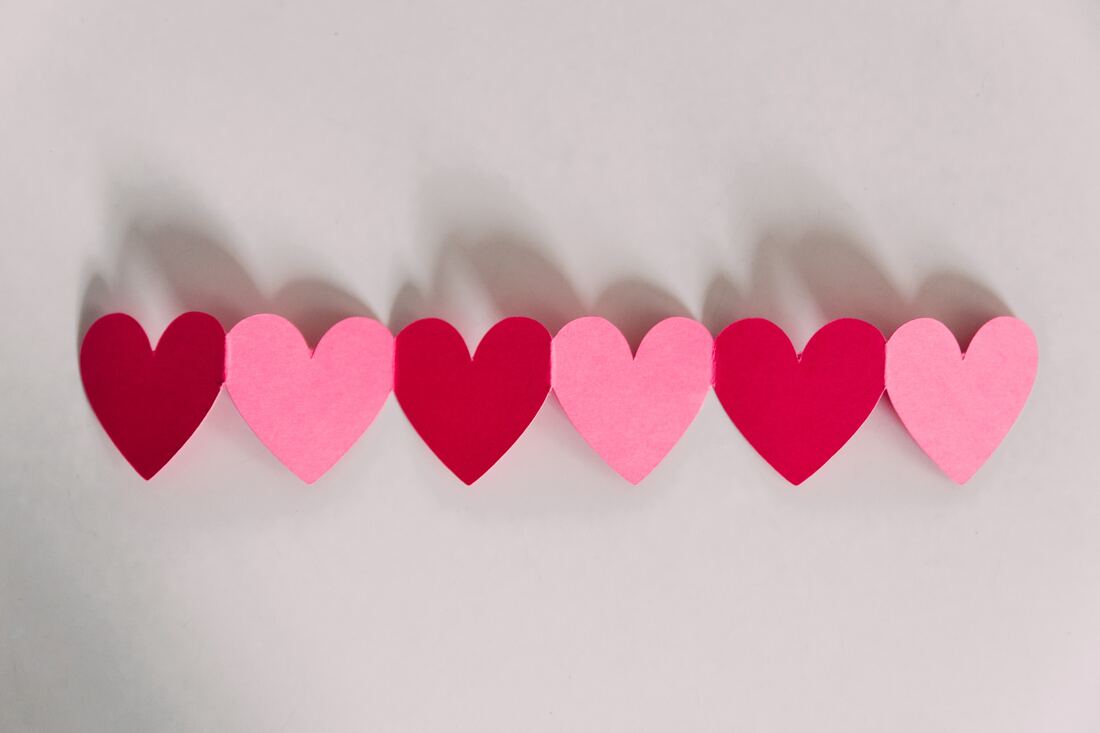|
After a breakup, it can be common to ask yourself the question “can I be friends with my ex?” Oftentimes, we may not know how to comprehend not having someone in our life who once played such a large and crucial part in it. If you are out of a breakup and thinking about wanting to have a friendship with your ex, here are some things to consider.
1. Am I worried about losing this person? Is the motivation to be friends with your ex coming out of a fear of losing this person altogether? Acting from a place of fear is never helpful, and often will leave us anxious and not aligned with our true self and needs. If being friends with this person is motivated by not wanting to say goodbye, it may be important to do some reflecting on what this fear is and how it can be healed outside of having a friendship with your ex. 2. Are my romantic feelings gone? Once we are romantically involved with someone, it can be very confusing to detach from that part of the relationship and have a friendship not based around a romantic nature. It is important to understand that when we date someone and have a sexual relationship with them, our brain actually is wired differently and can become deeply attached to this person. Moving from being someone’s romantic partner to their friend is not always black and white, and it can be important to ask yourself if you are still having romantic feelings towards this person. Do you still feel attached to them? Do you still want a physical connection with them? If the answer is yes, it can make it harder to move to a friendship. 3. How will I feel if this person starts dating someone else? Friends are people we can go to for advice and support in our life, and we often turn to friends when it comes to dating advice. If you are thinking about being friends with your ex, think about what it may feel like if that person were to start dating again. Would you feel okay with giving them advice or listening to them talk about having feelings for someone else? If we are wanting to be friends with our ex, that means being able to show up for them as you would any other close friend, so considering what you may feel if they begin to like someone else can be important to think about. 4. Would this friendship need boundaries? Given that you have a history of romantic relations with your ex, this would be a friendship that may need to have different boundaries than other friendships in your life. Thinking about what those boundaries would be, how you would enforce them, and how they might feel for you all are things to think about, and be able to dialogue about with your ex should you two choose to continue a friendship together. There is no black and white answer to the question of whether it is possible to be friends with an ex. Some people are able to do this, and for others it can be much more difficult, or not possible at all. Asking yourself the above questions and intentionally giving this relationship thought and effort is an important step in the process should you choose to try and purse a continued relationship after the end of a romantic one. Any holiday after a loss can be difficult, but living through the holiday meant for celebrating romance when you’ve just experienced a breakup can feel torturous. The good news is, it doesn’t have to be and you will survive it, and with the help of our tips, we’re hoping you can even enjoy it!
1. Nurture your relationship with yourself. No matter what falls apart in your life, you can always come back to yourself and grow from there. When you engage in the kind of self care that nourishes your soul, you’re improving your mental health, your wellbeing, and every single relationship you have and will have in the future. 2. Don’t neglect the other relationships in your life. Valentine’s Day doesn’t have to be reserved only for romantic relationships. Take some time to connect with your friends, siblings, children, parents and coworkers. Celebrate all relationships. 3. Plan your day in advance. To set yourself up for success on this Valentine’s Day, we recommend you do some planning instead of winging it and hoping it goes well. Whether you plan a Galentine’s dinner with your friends or get take out and watch a movie solo, plan the details in advance to avoid the disappointment of your friends already having plans or your favorite restaurant not doing deliveries that night. 4. Honor your feelings, but don’t get stuck in them. It’s natural to feel some sadness and loss on this day, when everyone else seems to be celebrating their relationship. Know that it’s normal, acknowledge your emotions and don’t try to ignore them completely. You can, however, also choose to engage in activities that will distract or take you away from the difficult emotions even if it’s for small chunks of your day. 5. Schedule some feel good moments. Plan for some activities that will help take you away from any negative feelings you might have. Wake up with a meditation, ask a colleague to go out for coffee, go for a walk during your break. When we think of Valentine’s Day, we think of romance, flowers, chocolates and fancy dinner reservations. For most people, the last thing they associate the holiday with is breakups. However, more breakups happen the Tuesday before Valentine’s Day, now dubbed Red Tuesday, than any other day of the year, and the weeks following Valentine’s day see the highest rates of breakups than any other time of year.
Breakups are never fun but when you see why this is the case, you may agree with us that this phenomenon isn’t as tragic as it sounds. Before you start thinking that Valentine’s Day itself is a curse on relationships, let’s examine the reasons why these breakups happen. 1. Most breakups happen before or after a significant holiday or anniversary. For people who are thinking about ending their relationship, it’s simply a calendar marker for when it might happen. The question becomes, do you try to enjoy the holiday with your partner one last time or spare having to purchase a gift and make plans? These significant dates make think about if they want to spend another holiday in this relationship if they are truly unhappy. 2. Especially in the era of social media, our relationship is scrutinized in comparison to other relationships. It’s easy to start believing other people are happier and more in love, are more admired by their partners or simply in relationship that’s better than yours. Although it’s not fair to judge your relationship based on the size of (or lack of) floral arrangements you receive on February 14th, if you’ve been feeling neglected and unhappy for a while, you may start thinking about if your relationship holds enough for you. 3. The day is primed for testing if your partner measures up. Whether it’s your favorite holiday or say you don’t care for it at all, it’s an opportunity to notice how significant your relationship is to your partner and how much effort they put into it. It’s not about how much is spent, but rather the attention and effort you get. 4. Under pressure, you may start analyzing all the things that are not working in your relationship. There’s so much artificial and unnecessary pressure for Valentine’s Day to feel perfectly romantic, there are few who are left truly satisfied on this evening as it is. Additionally, if you’re already unhappy with the dynamic in your relationship, the pressure could cause it to boil over. You’ll notice in all of these situations that a breakup was probably impending and possibly inevitable. Breakups aren’t necessarily a bad thing, more often than not it means the end of a relationship that wasn’t working in one or more essential ways. There it’s anything about Valentine’s Day that causes breakups, instead it influences people to examine their relationships and their level of satisfaction within it. For relationships that aren’t working for one or more partners, the unique properties of Valentine’s Day makes them notice and respond to those cracks in a way they may have been avoiding. |



 RSS Feed
RSS Feed